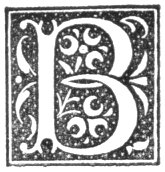
Sacred Texts Legends and Sagas Celtic Index Previous Next

|
O tender gem, and full of heaven! Not in the twilight stars on high, Not in moist flowers at even, See we our God so nigh. Sweet one, make haste, and know him, too, |
 |
The system of registration has in a great measure put an end this anxiety for having the child early baptised.
"Oh, Sir," said the wife of a working man to the minister,
on asking him to baptise her child along with others, whose mothers were present, "this registration's the warst thing the queentry over saw; it sud be deen awa wee athegeethir."
"Why?" asked the minister, in astonishment at the woman's words and earnestness of manner.
"It'll pit oot kirsnin athegeethir. Ye see the craitirs gets thir names, an we jist think that aneuch, an we're in nae hurry sennin for you."
Baptism was administered sometimes in private and sometimes in public. The child was dressed in white, and wore a fine cap. It was commonly the sick-nurse that carried in the infant, handed it to the father, and received it from him after baptism. On the conclusion of the rite in private, bread and cheese, with whisky, were set before the guests. It would have been regarded as an utter want of respect, and unlucky, not to have partaken of the bread and cheese, and not to have put the glass with the whisky to the lips. In doing so there were repeated the words--"Wissin the company's gueede health, an grace an growan to the bairn." Sometimes, instead of the latter phrase, were substituted the words, "Fattenan an battenan t’ the bairn." A feast usually followed.
Each guest gave a small gift in money to the child, and the sum so given was the nurse's fee.
The child must sleep in its baptismal dress.
In sprinkling the water of baptism all care had to be used to keep it from entering the eyes, as it was believed that the least drop of it entering the eyes opened them to the seeing of ghosts in the journey of life.
When the water fell upon the child, unless it cried it was augured that it would be short-lived, and it is said that, if it did not cry, the woman who received it from the father handled it roughly, or even pinched it, to make it utter the desired cry. 1
The water was carefully kept for a time--at least eight days--and then reverentially poured below the foundation of the dwelling-house; or it was drunk, under the belief that it
strengthened the memory. Alongside the basin, with the water needed for the rite, some, placed bread and a Bible.
If the child was taken to a neighbour's house at a distance, or to church to be baptised, the woman who carried the child carried also some bread and cheese, and another of the party was provided with a bottle of whisky and a dram glass. The person first met received bread and cheese and a dram, and usually turned, and walked a short distance. 1 If it was a woman that was first met, she carried the baby as far as she went. One of the cloths indispensable to a baby was also carried, and cast away by the road.
If a boy and a girl were to be baptised together, the greatest care was taken to have the parents so placed that the minister must baptise the girl first. If there was the least suspicion of the minister reversing the order, great uneasiness was manifested, and, if he did proceed to baptise the boy first, the girl was put forward, and when baptised first a gleam of satisfaction lighted up the faces of the girl's friends. This procedure was followed under the belief that, if the boy was baptised before the girl, he left his beard in the water, and the girl got it. 2
If it happened that a girl was brought to church to be baptised, and returned without baptism, she died unmarried.
In returning home a neighbour by the wayside took the party in, and prepared a dish called in Gaelic fuarag. It was made of oatmeal and cream, or of oatmeal and whisky. Each of the party received a spoonful, and a small portion was put into the child's month.
11:1 Cf. Henderson, p. 16.
11:2 Cf. F. L. Record, vol. i, p. 11 (37).
11:3 Cf. Henderson, p. 15.
12:1 Cf. Henderson, p. 16, and F. L. Record, vol. i. p. 11 (39).
13:1 Cf. Henderson, p. 12.
13:2 Ibid. p. 16.